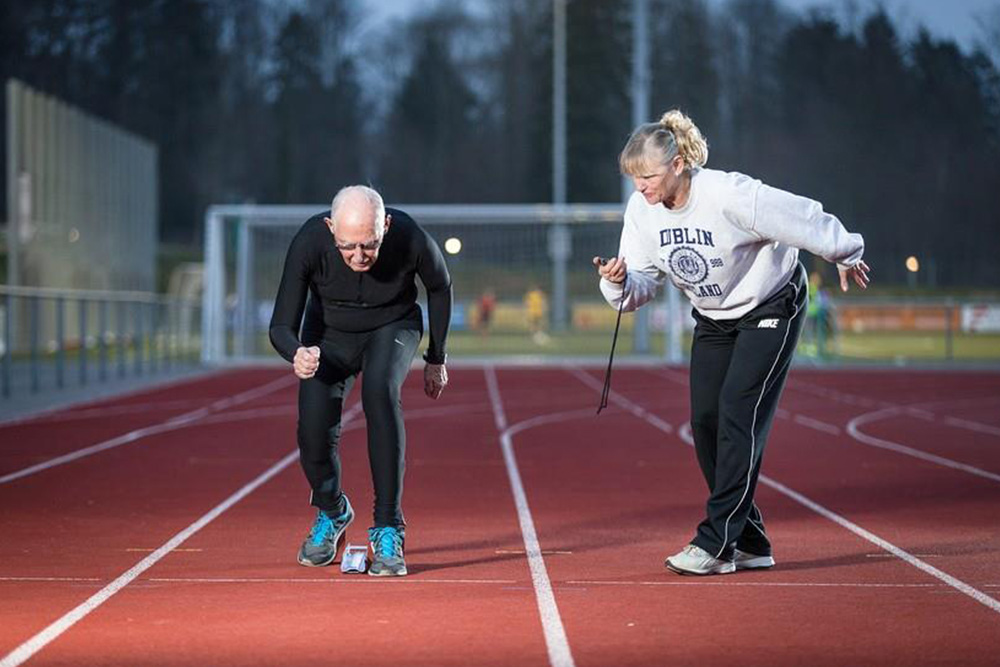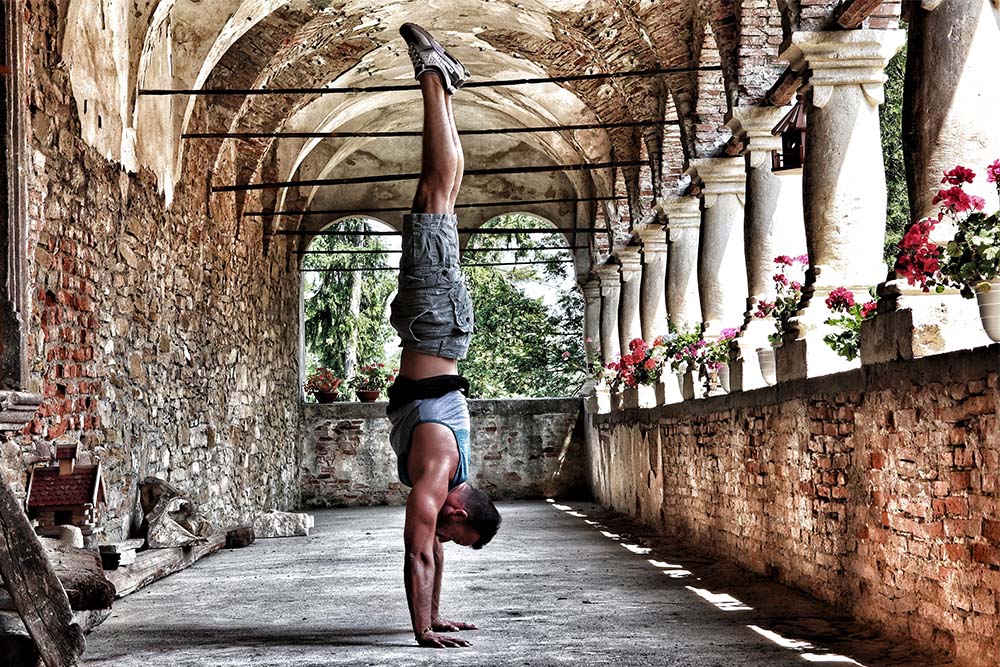95 year Old Track Star: Charles Euster

Sara Thompson – MSc in Exercise Science
I first learned of Charles Eugster when Fiona Callender and I visited Europe last summer. Fiona and I did a quick tour of Europe, meeting up with a number of researchers who study interval training and the aging population. However, we were also hoping to meet some star Masters athletes. We had heard of Charles Eugster as a very successful Masters track athlete, but didn’t know much more about him. After a quick Google search we discovered that he had just run the world record for the 200-metre sprint in the 95-year-old category! We were immediately intrigued.
We found out that he would be competing in the World Masters Track and Field Championship in Lyon, France. We excitedly checked the dates and realized, to our dismay, that we would JUST miss seeing Charles compete, as his races were earlier on in the competition. Disappointed, we still made a trip to the World Masters Championship and ended up seeing some incredible performances. However, there was a part of us that was still itching to meet him.
Finally, half a year later, after many email exchanges, I was finally able to connect with Charles to talk about his motivation, training, and journey to excellence in his later years.
The first thing I learned was that Charles only recently took up sprinting. In fact, his first time on an indoor track was when he broke the World Record in the 200-metre sprint at the 2015 British Championships. Since then he has broken the 400-metre World Record and has three British records to his name. Not bad for starting the sport only a year and a half ago!
While he didn’t start running until his mid 90’s, Charles started competing in Masters rowing when he was 63. Charles rowed in his youth, however didn’t pick up the sport again until he discovered that there was a Masters category for 60-year-olds. Charles rowed nationally for several years, and then started competing internationally in 1997. During this time, Charles became one of the most decorated Masters rowers, winning 40 individual and team World Masters gold medals.
At age 94, Charles decided to move on from rowing because he was experiencing two ailments common to elite rowers: back problems and heart arrhythmias. So Charles decided to take to the track and see if sprinting might suit him better. Thankfully, Charles has found that with the help of a coach, he no longer has back issues. Even more remarkable, the high intensity interval training he does for running has actually been beneficial for his heart. He also notes that unlike many individuals in his demographic, he doesn’t have any artificial joints, typical aches and pains, nor does he take any medication.
When I asked Charles why he decided on sprinting he replied, “Because I was curious”. Charles is no stranger to taking up new sports. When he was 87 years old, he tried wakeboarding for the first time! In the same year, he joined a bodybuilding club. Charles explained that despite rowing six days per week, he could not offset what he refers to as ‘the deterioration of his body’. Charles is referring to sarcopenia, or the loss of muscle mass that naturally occurs in old age. He came to the realization that endurance training in old age is insufficient, and that in order to combat sarcopenia, he needed to add resistance training into his regime. This is when Charles became famous for being “the World’s Oldest Bodybuilder” (You can check out his website here: charleseugster.net).
Ten years later and a decorated runner, Charles still focuses primarily on maintaining his muscle mass. When I was talking to him, he was in the midst of training for the British Masters and his main focus was on strength. He explained that as he gets closer to the competition, he’d start to focus on running itself. For strength training, Charles goes to a gym a few times per week to train with his personal coach. He’s also increased his protein consumption over the years to maintain his muscle mass.
During our conversation, it was obvious that Charles knew a lot about physiology, and I inquired if he studied biology or exercise science. Turns out that he is a retired dentist and knew almost nothing to do with exercise physiology until he started competing in Masters events. Charles does his own research to be as informed as possible to best prepare for his next competition. He’s even writing a book on his experience as an aging athlete.
When I asked Charles what his motivation was, his answer was simple: he likes to win. That feeling of success is what pushes him to continue to train. However, he admits that each person is motivated differently. He said that for someone who is looking to take up a new sport, the first thing they should do is to set a specific goal. Once the goal is set, then they can start to develop their individualized training plan.
Charles just competed at the British Masters Athletics Championship and won the 60-metre sprint with a time of 15.44 seconds! However, the 2016 season is just beginning and his sites are set on the World Masters Championships in Perth in the fall. FTG will be following his progress leading up to the Championship, and we’re excited to see him compete against the best sprinters in the world in his age group!










